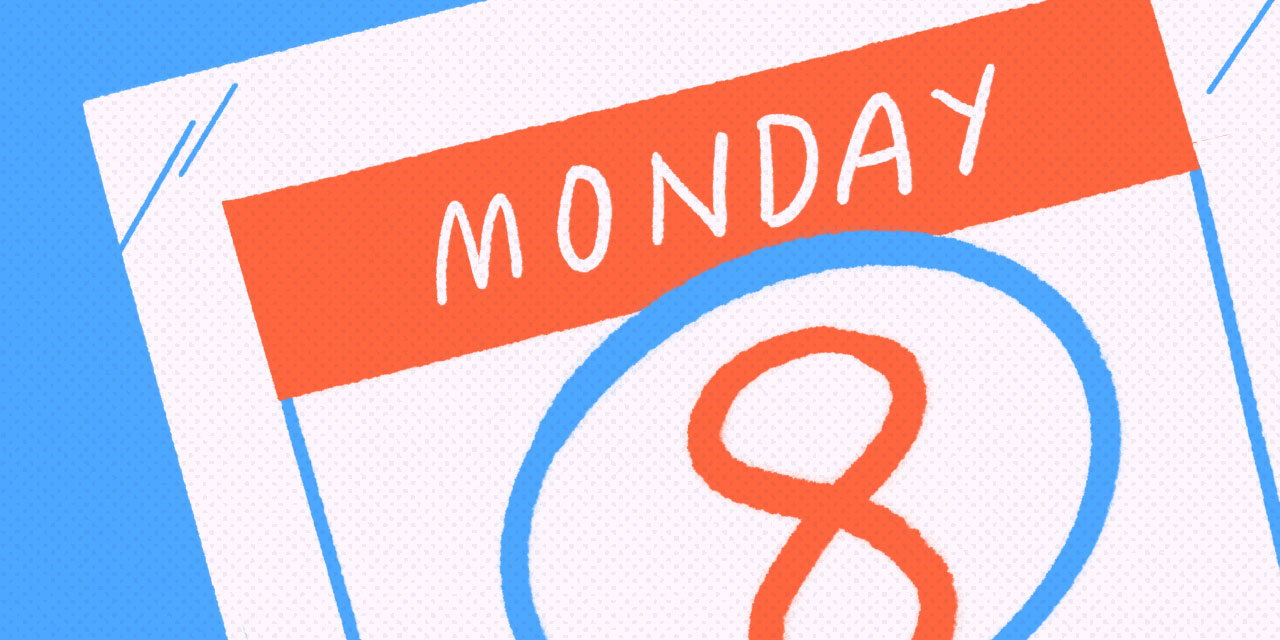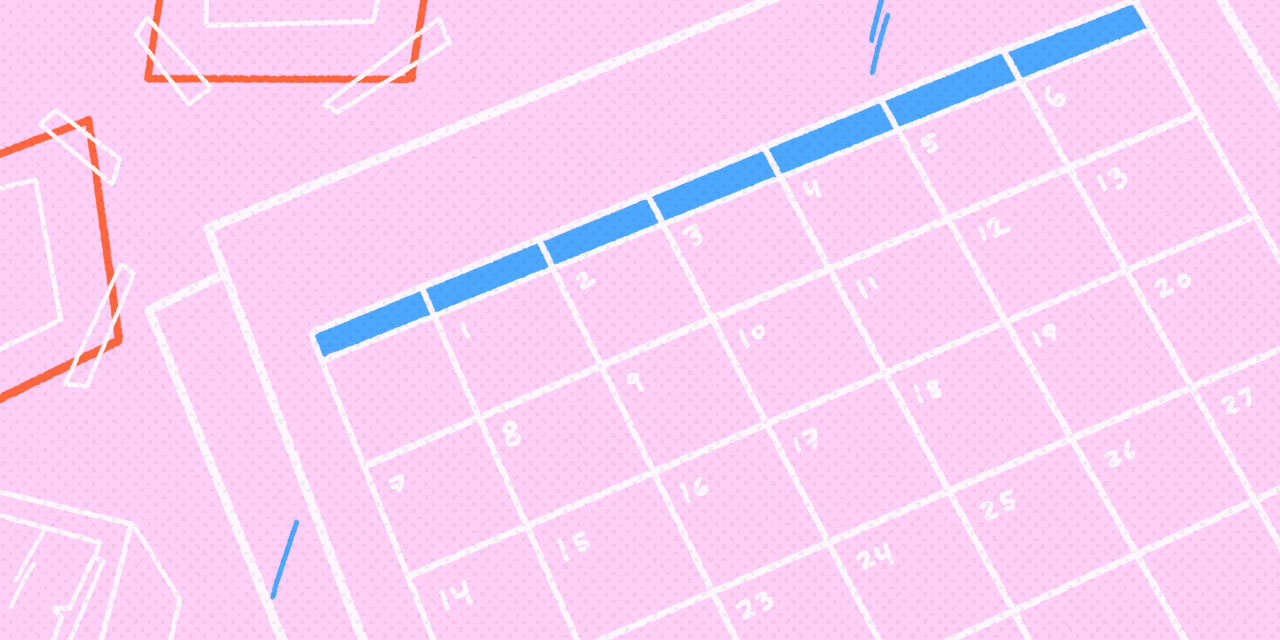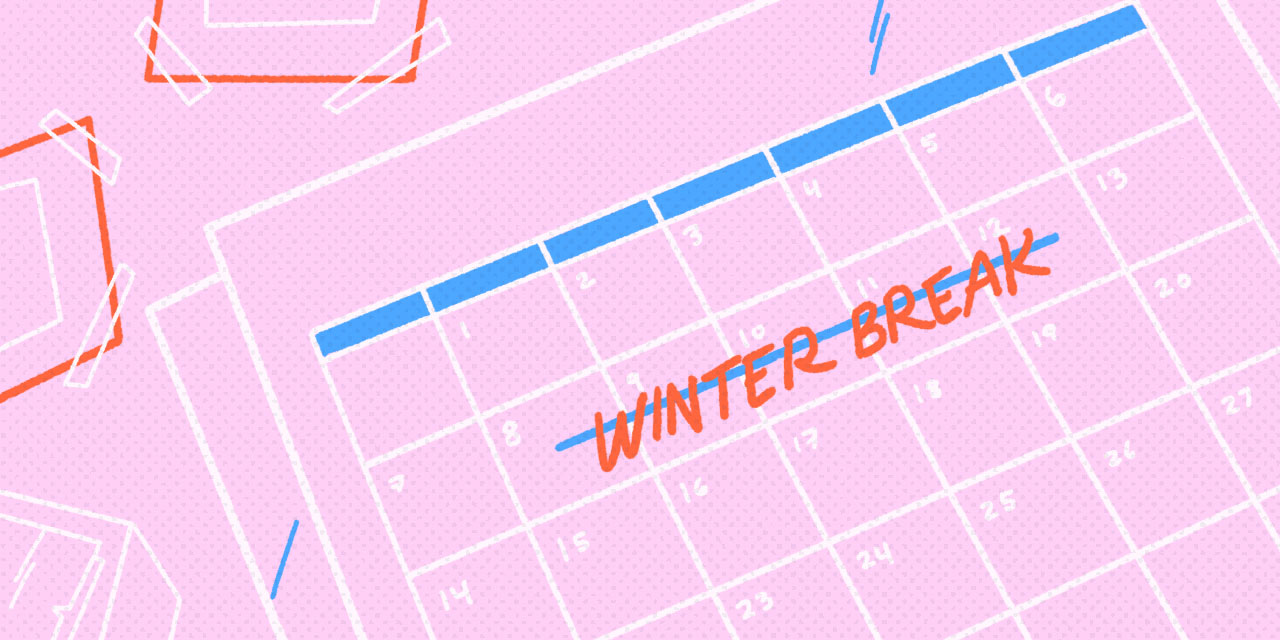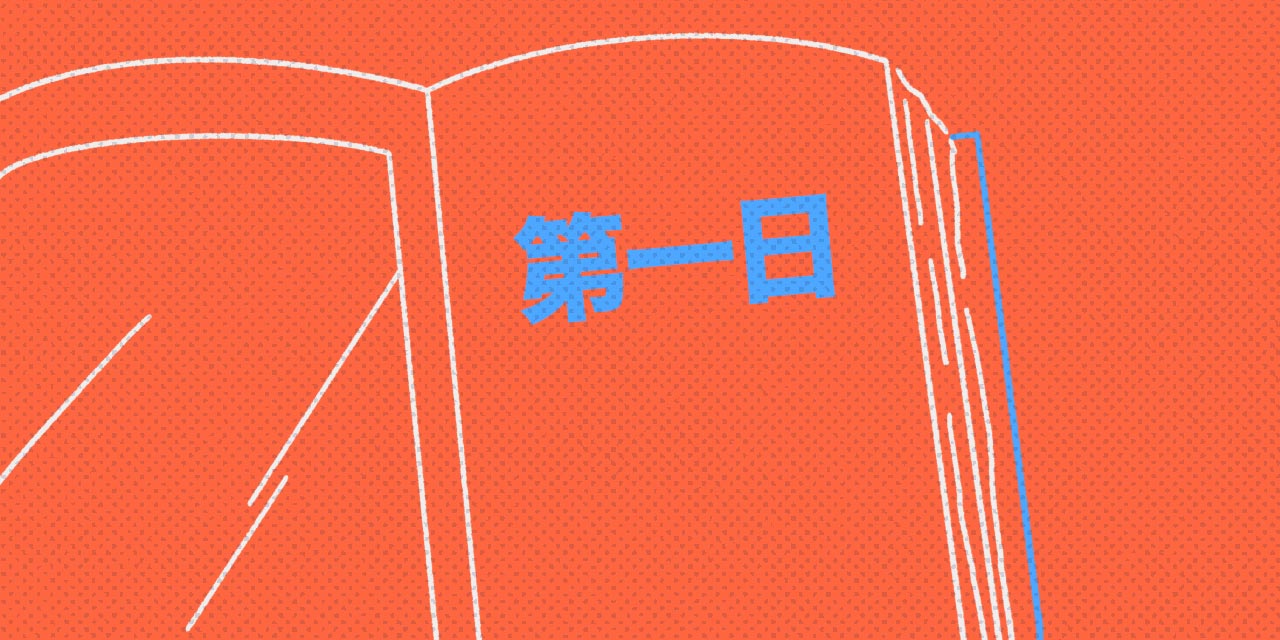While our Japanese counters lessons don't normally go into more explicit detail about pronunciation, 日 is an exception. We'll cover everything so you can become a day-counting pro!
In Japanese, the counter 日 (か/にち) is used both for counting days and as an ordinal number suffix for calendar days.
Remember that cardinal numbers are numbers like "one," "two," and "three," whereas ordinal numbers are numbers like "first," "second," and "third"—numbers that denote place, order, or items on a list. Ordinal numbers are also what we use to count calendar days in English: April fifteenth, January first, etc.
For the non-native speaker, this difference between ordinal and cardinal numbers can be confusing. In English, "first," "second," and "third," for example, sound nothing like "one," "two," or "three"—yet they both denote a way to count certain things. Japanese does something similar, which is why reading 日 can get complicated.
Prerequisite: If you're new to Japanese counters, we recommend you learn the basics first. Make sure you know how to read hiragana and katakana; we'll talk about the kango/wago/gairaigo counting method, and you can learn about all three of these Japanese numbering systems in our Counting in Japanese article. Knowing the kanji for numbers will help too. In the example sentences and explanations that follow, we'll use a mix of written and Arabic numerals (1, 2, 3) and Japanese kanji (一, 二, 三), since Arabic and kanji are common in Japanese.
Pronunciation of Japanese Counter 日
To start with, 日 can be read as either か (wago) or にち (kango). Unlike other counters, it doesn't follow the standard wago pronunciations. On top of that, its pronunciation changes based on the kind of day you're talking about: if you're counting or listing days, for example, 日 is read one way; if you're counting or listing calendar days, it's read another. It can get confusing!
Don't fret, though. While our Japanese counters lessons don't normally go into more explicit detail about pronunciation, 日 is an exception. We'll cover everything so you can become a day-counting pro!
Let's start with the following chart. Take a look, then read on for more…
| Numeral | Japanese | Reading 1 | |
|---|---|---|---|
| 1 | 一日 | いちにち (ついたち/いっぴ) | |
| 2 | 二日 | ふつか | |
| 3 | 三日 | みっか | |
| 4 | 四日 | よっか | |
| 5 | 五日 | いつか | |
| 6 | 六日 | むいか | |
| 7 | 七日 | なのか | |
| 8 | 八日 | ようか | |
| 9 | 九日 | ここのか | |
| 10 | 十日 | とおか | |
| 11 | 十一日 | じゅういちにち | |
| 12 | 十二日 | じゅうににち | |
| 13 | 十三日 | じゅうさんにち | |
| 14 | 十四日 | じゅうよっか/じゅうよんにち | |
| 15 | 十五日 | じゅうごにち | |
| 16 | 十六日 | じゅうろくにち | |
| 17 | 十七日 | じゅうしちにち/じゅうななにち | |
| 18 | 十八日 | じゅうはちにち | |
| 19 | 十九日 | じゅうくにち | |
| 20 | 二十日 | はつか (にじゅうにち) | |
| 49 | 四十九日 | よんじゅうくにち (しじゅうくにち) | |
| 100 | 百日 | ひゃくにち | |
| 1,000 | 千日 | せんにち | |
| 10,000 | 一万日 | いちまんにち | |
| how many days/which day | 何日 | なんにち |
In general, you can use your knowledge of wago numbers and how they change when you add the k-sound for everything but the exceptions.
一日
The word 一日 means "one day," "a whole day," or "the first day of a calendar month." When it means "one day" or "a whole day," it's read as いちにち; when it means "the first day of a calendar month," it's read as ついたち.
The first is kango and the second is wago.
- あと一日で卒業です。
- We will graduate in one day.
- 四月一日はエイプリルフールです。
- April first is April Fools' Day.
- あと1日で、1月1日です。
- One more day, and it'll be January first.
"One day" and "one whole day" can be read as ひとひ or いちじつ, though this isn't as common anymore and is becoming archaic.
There's a reason for this difference. During the Nara and Heian periods, both "one day" and "the first day of the calendar month" were pronounced the same: ひとひ. This was confusing, and over time both the kanji and the pronunciation for "the first day of the month" changed.
How did it change? Well, in those days, Japanese society was using the lunar calendar (陰暦 いんれき) and eventually adopted an old word for how the moon looks when it's hiding: 月立 (つきたち). 月立 is made from the kanji for 月 (moon) and 立 (stand up). Over time, its pronunciation changed to ついたち, which is the reading we use today.
Bonus Fact #1: In some business and formal situations, "the first day of the month" can also be read as いっぴ, though no one seems to know why.
- 6月1日(いっぴ)でルールが変わったんです。
- The rule was changed on June first.
Bonus Fact #2: "One day" and "one whole day" can be read as ひとひ or いちじつ, though this isn't as common anymore and is becoming archaic. While ひとひ or いちじつ might appear in classic novels or such, they usually have furigana, so you don't need to worry about them. (Unless you want to really impress people at parties!)
- その日は一日(ひとひ)を海辺でぼんやりと過ごした。
- I spent that entire day daydreaming at the beach.
- 4月1日(いちじつ)に花子さんと食事をした。
- I had a meal with Hanako-san on April first.
八日
The word 八日 means "eight days" or "the eighth day of a calendar month." Both are pronounced ようか. Yet in our article about how to count in Japanese, we learned that the wago reading for "eight" is や. So why is this ようか?
Apparently, it was originally やか, but eventually changed to やうか, and then finally changed one more time to ようか.
- 8日前に太郎君と会いました。
- I saw Tarō-kun eight days ago.
十四日 and XX十四日
Another example: the word 十四日 means "fourteen days" or "the fourteenth day of a calendar month." It can be read as either じゅうよんにち or じゅうよっか—and it's the same as other XX十四日 days, from 二十四日 to 九十四日, and so on. ("XX" refers to other numbers.)
It's more common to read 日 as か for calendar days, which means the 四日 of 十四日 and 二十四日 tends to be read as よっか, whereas the 四日 of 三十四日 or higher XX十四日 days tends to be read as よんにち.
- 7月14日にパンツを買った。
- I bought some underwear on July fourteenth.
- 14日間断食した。
- I fasted for fourteen days.
- 日本語の勉強を始めて、今日で34日です。
- It's been thirty-four days since I started studying Japanese.
二十日
Some people may read 二十日 as にじゅうにち to avoid confusion with 二日 (ふつか), but reading it as はつか is still more common.
A couple more exceptions. The word 二十日 means "twenty days" or "the twentieth day of a calendar month," and it is read as はつか or less commonly as にじゅうにち. The reading はつか is wago, yet as we mentioned in our big counting article, the wago reading for "twenty" is はたち. Why is it はつか then?
The ち of はたち used to be a general counter suffix, just like ~つ! If you wanted to count something different, you needed to replace it with other counter suffixes like 年 (とせ) for ages like 二十年 (はたとせ), 巻 (まき) for volumes like 二十巻 (はたまき), 人 (とり) for people like 二十人 (はたとり), and 日 (か) for days like 二十日 (はたか).
That means 二十日 was originally read as はたか, but with time it changed to はつか, which is how we know it today.
Some people may read 二十日 as にじゅうにち to avoid confusion with 二日 (ふつか), but reading it as はつか is still more common.
- 二十日もビールを飲んでいない。
- I haven't had any beer for twenty days.
- 4月2日じゃなくて、20日(にじゅうにち)の方です。
- It's not April second, it's the twentieth.
四十九日
One more: the word 四十九日 means "forty-nine days" and is normally read as よんじゅうくにち. However, when it means "the forty-ninth day after someone's death for the 49 Day Funeral Ceremony", it is read as しじゅうくにち. While you may not come across this specific event, it appears regularly in Japanese movies, dramas, novels, and manga, so you should know it's out there.
- もうすぐお爺ちゃんの四十九日ですね。
- Our grandpa's Forty-nine Day Funeral Ceremony is coming up soon, isn't it?
How to Use the Counter 日
Now that we've addressed these reading exceptions, it's important to mention that using the 日 counter is actually very simple. 日 is used to count ordinary days or calendar days. Still, be careful of the pronunciation of 一日, because it changes.
Ordinary Days

日 is used to count the number of days. It also can mean "a whole day."
- 一日は二十四時間です。
- One day is twenty-four hours.
- 今日は一日中ボーッとしていました。
- I was just spacing out all day long today.
- もう三日も何も食べていません。
- I haven't eaten anything for three days now.
- この絵を描くのに、二十日かかりました。
- It took me twenty days to paint this picture.
- あなたに出会って、今日で八十四日よ。
- It's been eighty-four days since I met you.
- 五泊六日でイギリス旅行に行ってきました。
- I went on a six-day / five-night trip to England.
- 八日後に予約を取りました。
- I got an appointment in eight days.
Calendar Days

日 is also used for calendar days.
- 一月一日(ついたち)は何をしていましたか?
- What were you doing on January first?
- 四月一日(いっぴ)付けで、人事部に異動になった。
- They decided I'll be transferred to HR on April first.
- 3月14日はホワイトデーです。
- March fourteenth is White Day.
Ordinal Number Days

If you want to count days such as "day one," "day two," or "day three," use the ordinal number prefix 第 (だい) and/or the suffix 目 (め).
Calendar days are typically ordinal numbers, of course, but you need a way to count non-calendar days in order too.
If you want to count days such as "day one," "day two," or "day three," use the ordinal number prefix 第 (だい) and/or the suffix 目 (め). "Day one" becomes 第一日 (だいいちにち), 一日目 (いちにちめ), or 第一日目 (だいいちにちめ). The same goes for the rest of the numbers that follow. Easy, right?
In general, remember that 第 is kango and 目 is wago, and that the pronunciation changes depending on whether you use 第 or not.
第 (だい)

The ordinal number prefix 第 (だい) is usually more formal than 目.
第 usually turns the number following it to the kango pronunciation, and its influence is so strong that it changes the 日 counter at the end to kango as well. Take a look at this chart:
| Numeral | Japanese | Reading 1 | |
|---|---|---|---|
| 1 | 第一日 | だいいちにち | |
| 2 | 第二日 | だいににち | |
| 3 | 第三日 | だいさんにち | |
| 4 | 第四日 | だいよんにち | |
| 5 | 第五日 | だいごにち | |
| 6 | 第六日 | だいろくにち | |
| 7 | 第七日 | だいななにち | |
| 8 | 第八日 | だいはちにち | |
| 9 | 第九日 | だいくにち (だいきゅうにち) | |
| 10 | 第十日 | だいじゅうにち | |
| 11 | 第十一日 | だいじゅういちにち | |
| 12 | 第十二日 | だいじゅうににち | |
| 14 | 第十四日 | だいじゅうよんにち | |
| 20 | 第二十日 | だいにじゅうにち | |
| 49 | 第四十九日 | だいよんじゅうくにち | |
| 100 | 第百日 | だいひゃくにち | |
| 1,000 | 第千日 | だいせんにち | |
| 10,000 | 第一万日 | だいいちまんにち | |
| how many days/which day | 第何日 | だいなんにち |
- 第一日: ワニカニで部首の勉強をした。
- Day 1: I studied radicals on WaniKani.
- 第二日: トーフグの日本語についての記事を読んで勉強をした。
- Day 2: I studied by reading Tofugu articles about Japanese.
目 (め)

This is a casual version of 第 and doesn't have as strong an influence over the readings. The pronunciation of numbers that end with the suffix 目 stay the way they normally sound when using the 日 counter.
When you want to say "the first day," "the second day," "the third day," etc., you usually use 目.
- 一日目でここまで出来たら上出来だよ。
- If you can do this much on the first day, that's more than enough.
- ダイエット四日目で52kgまで落ちた。
- I was down to fifty-two kilograms on the fourth day of my diet.
- 三日目: 朝ごはんにリンゴを食べた。
- Day 3: I ate an apple for breakfast.
第 XX 目 (だい XX め)
Although you're technically not supposed to combine 第 and 目 (to make 第一日目, for example) because it's repetitive, plenty of people still do. We've even seen it used in official sports schedules and news articles.
Since 第一日目 isn't correct per se, pronunciations vary: Japanese people we spoke with agreed that either wago or kango readings work just fine. That means you can end up with 第一日目 (だいいちにちめ), 第二日目 (だいににちめ/だいふつかめ), 第三日目 (だいさんにちめ/だいみっかめ), 第四日目 (だいよんにちめ/だいよっかめ)… and so on.
- トーフグ女子オープン、第二日目(だいににちめ)の結果。
- Women's Tofugu Open: the results of the second day.
- トーフグ女子オープン、第二日目(だいふつかめ)の結果。
- Women's Tofugu Open: the results of the second day.
何日 will it take?
The counter 日 is a powerhouse of exceptional pronunciations. It makes us wonder: 何日 (how many days) will it take you to become familiar with them? ー日 day? 二日 days? 三日 or maybe 百日 days? We hope it's not too long, because you've got more counters to tackle, including 月, 時/時間, 分, and 階! You're doing great—keep going!
And if this was your first counters experience, we suggest you read about the basics of Japanese counters, and then head on over to the big Japanese counters study list we put together, which also has links to every in-depth counters article we've written up to this point.
